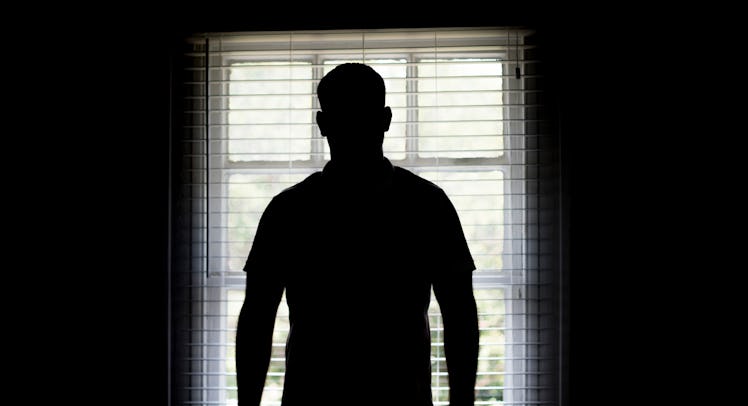The Real Reason Dads Are Scarier Than Moms (And Everyone Else)
Dads who fear being feared may not be able to avoid it thanks to a potent mix of evolution, psychology, and culture.

Dads may seem scarier than moms, but it’s not simply because they are bigger, or have deeper voices. We have an intense need for our fathers’ approval, psychologists say, and deep seated fear of disappointing them casts a shadow over most interactions. For instance, when your mother used to say “just wait until your father comes home,” this subconsciously terrified you. Why? Because she was raising the possibility that dad would reject you upon arrival.
“It doesn’t have to be a physical fear,” Dara Bushman, a clinical psychologist, told Fatherly. “It’s really about the desire for male attention and approval. It’s a fear of emotional needs not being met.”
To be fair, physical fear of fathers does have legitimately violent roots. There’s evidence that, in the ancient world, when babies did not look like their fathers they were often abused or killed. Even in modern times, studies suggest fathers invest more energy in children who look like them.
But there are also more subtle fears at play. Small children have an instant, physical connection with their mothers and spend relatively little time worrying about the fidelity of that connection. Not so with fathers, who often are less present and have uncertain schedules. “Babies have an instant bond with their mom,” Bushman says. “They’re constantly seeking that connection with their fathers.”
One advantage to dad not being around as much is that it is easier for him to discipline the children. “Dad becomes a little bit more elusive, a little bit of a stranger, and a little bit of a novelty,” Richard Horowitz, a parenting coach and professor of education at Caldwell University, agrees. “That’s why dads don’t really have to be aggressive or objectively scary to keep kids on their toes.” Alas, one disadvantage is that he’s terrifying, and it is never clear whether kids have his approval.
And the cycle tends to repeat. Fathers scare their sons, who in turn grow up to scare their own kids.
“Psychologically people tend to repeat how they were raised, so for guys raised by a very authoritarian father, they often feel like it worked for them,” Horowitz says. In his experience leading support groups for men, he’s found this very hard to undo. But even without a physical fear, when men and women are not sure where they stand with man who made them, they’re more likely to live on the edge.
“There’s no question, even if it’s not a physical fear, a father’s validation is important for boys and girls seeking their approval. If you’re not feeling that approval, you’re going to be anxious.”
This article was originally published on